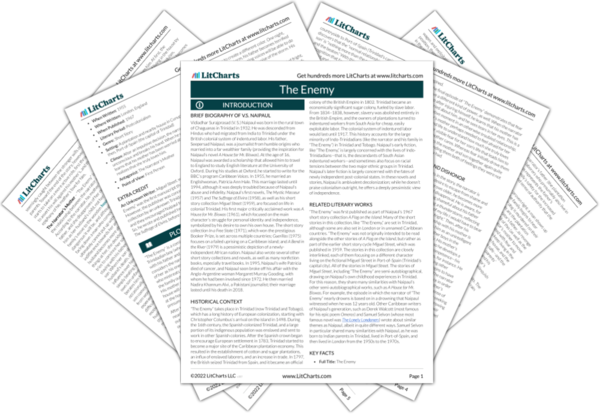The murder of the dog is a terrifying indication that the voices pose a real, and not just an imagined, threat to the family. Although it’s possible that the murdered dog was simply intended to frighten the family, it seems more likely that it is a threat of what might be done to the family members themselves. The narrator’s father’s stubbornness in refusing to move out of the house, even in face of these threats and his wife’s pleading, again suggests that the house holds some kind of symbolic value for him, perhaps as an embodiment of his authority and status. And, as a result, he “doesn’t really care” what happens to him or his family—he only cares about projecting a powerful, self-assured image. Another interpretation is that he is afraid of showing any weakness or believes that he will be dishonoring himself by admitting he’s afraid. Instead of taking practical steps to protect his family, he takes refuge in religion, mixing together Hinduism, Christianity, and his own imagination. His abuse of his wife echoes his mistreatment of the workers (which, perhaps, is the source of all their troubles in the house). The narrator’s decision to stay with his father, rather than leaving with his mother, seems to be the major falling-out point between him and his mother—perhaps because she feels that her son has chosen her husband over her, despite his abusiveness and recklessness.
